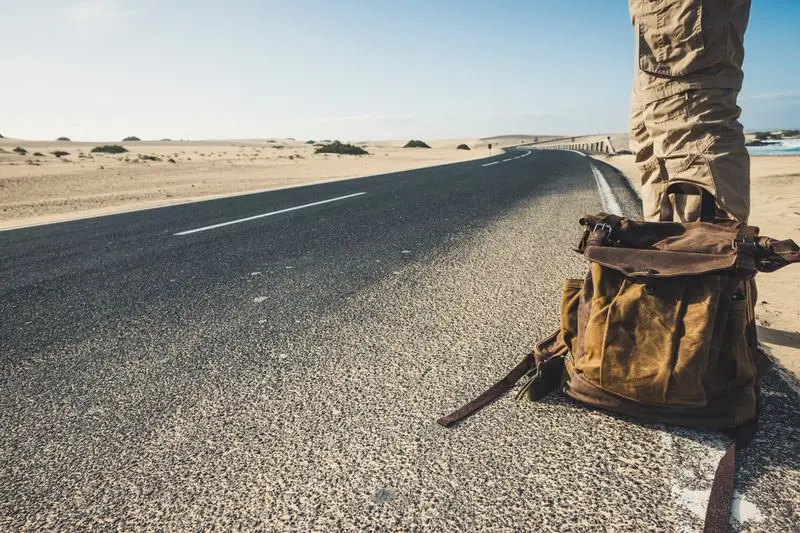global volunteering making a difference while seeing the world
Opinino
By published

Global Volunteering: Making a Difference While Seeing the World
Global volunteering is a unique way to combine travel with meaningful contributions to communities around the world. Volunteering abroad offers the opportunity to give back, build connections, and immerse yourself in local cultures, creating a rewarding experience that goes beyond traditional travel. If you're interested in making a difference while seeing the world, here’s a comprehensive guide to help you get started.
Why Volunteer Abroad?
Volunteering abroad allows you to make a positive impact while gaining unique insights into the places you visit. Here are some key reasons why people choose global volunteering:
Contribute to Local Communities: Your skills and time can support valuable projects, whether in education, conservation, healthcare, or community development.
Cultural Immersion: Living and working alongside locals offers an authentic perspective on their culture, daily life, and challenges.
Personal Growth: Volunteering abroad can build resilience, adaptability, and a deeper understanding of global issues.
Skill Development: Many volunteer roles help you develop or enhance skills, from language proficiency and communication to leadership and problem-solving.
Popular Types of Volunteer Projects
Global volunteering programs vary widely, so it's important to choose one that aligns with your interests, skills, and the needs of the community. Here are some of the most common types of volunteer projects:
1. Education and Teaching
Volunteers in education work with children, teens, or adults to teach subjects like English, math, and basic computer skills.
Example Roles: English teacher, classroom assistant, after-school tutor.
Impact: Education projects help bridge knowledge gaps, promote literacy, and empower communities.
Ideal for: Volunteers with teaching experience or a passion for working with learners of all ages.
2. Environmental Conservation
Environmental volunteers assist in protecting natural habitats, conserving wildlife, and raising awareness about sustainability.
Example Roles: Wildlife conservationist, tree planter, marine researcher.
Impact: Conservation projects help preserve biodiversity, protect ecosystems, and support sustainable practices.
Ideal for: Nature lovers, science students, and anyone passionate about environmental protection.
3. Healthcare and Medical Support
Medical volunteering often involves assisting healthcare professionals, educating communities on health practices, and supporting public health initiatives.
Example Roles: Medical assistant, health educator, community health promoter.
Impact: Medical projects can improve healthcare access, educate communities on preventative health, and save lives.
Ideal for: Medical professionals, students, or those interested in public health.
4. Community Development
Community development projects support local infrastructure, social services, and skills training to improve quality of life.
Example Roles: Construction worker, skills trainer, community organizer.
Impact: These projects help build facilities, enhance local resources, and empower residents with practical skills.
Ideal for: Volunteers with specific skills, such as carpentry or community planning, and those eager to contribute to lasting change.
5. Animal Care and Rescue
Animal-focused programs involve caring for animals, promoting animal welfare, and sometimes participating in rescue and rehabilitation efforts.
Example Roles: Animal caretaker, wildlife rehabilitator, shelter assistant.
Impact: These projects promote animal welfare and protect vulnerable species.
Ideal for: Animal lovers and those interested in veterinary science or wildlife conservation.
Choosing the Right Volunteer Program
Not all volunteer programs are created equal, so it’s essential to choose one that matches your goals and values. Here’s what to consider:
1. Research the Organization
Look for reputable organizations with a proven track record of responsible and sustainable volunteer work.
Transparency: Organizations should be clear about how your time, fees, and efforts will contribute to the project and community.
Community Involvement: Programs that work directly with local communities to assess needs and implement projects are often the most impactful.
Past Volunteer Feedback: Reading reviews and speaking to former volunteers can provide valuable insights into the program's effectiveness and integrity.
2. Evaluate Program Fees
Some volunteer programs require fees to cover accommodations, meals, training, and support, while others offer free or low-cost options.
Understand Costs: Ensure you know what is covered by the program fee, and look for organizations that are transparent about their finances.
Look for Affordable Options: Organizations like WWOOF, HelpX, and Workaway offer low-cost placements in exchange for work, while some NGOs offer scholarships or reduced fees for certain projects.
Fundraising: If costs are a barrier, consider raising funds through platforms like GoFundMe or hosting local events to support your journey.
3. Assess Skill Requirements and Training
Some volunteer programs require specific skills or certifications, such as language proficiency or medical qualifications, while others provide training.
Review Requirements: Ensure you meet the qualifications for your chosen program, especially if specialized skills are needed.
Seek Skill-Building Opportunities: Look for programs that offer training to help you make a more significant impact and gain valuable skills in return.
4. Consider Your Impact
Responsible volunteering means contributing in ways that have a lasting, positive impact on the community rather than creating dependency.
Focus on Sustainable Projects: Programs with a long-term focus and local involvement are often the most beneficial to communities.
Avoid Voluntourism: Be wary of projects where volunteer involvement may do more harm than good, especially those that exploit vulnerable populations or animals for profit.
Preparing for Your Volunteer Experience
A well-prepared volunteer is a more effective volunteer. Here’s how to get ready for your experience:
1. Research Cultural Norms and Language
Understanding the culture and language of your destination will enhance your experience and interactions.
Learn Key Phrases: Familiarize yourself with basic greetings, phrases, and expressions in the local language.
Understand Cultural Etiquette: Research cultural customs, dress codes, and social norms to avoid misunderstandings and show respect.
Be Mindful of Religious and Social Practices: Many countries have specific religious or social practices, so understanding these helps you adapt more smoothly.
2. Pack Thoughtfully
Bring essentials for your volunteer work and personal needs while avoiding overpacking.
Work-Appropriate Gear: Depending on your project, you may need specific clothing, such as sturdy shoes, work gloves, or outdoor gear.
Personal Essentials: Pack items like medication, a first-aid kit, and toiletries that might be hard to find at your destination.
Gifts for Hosts or Communities: Small, thoughtful gifts like postcards, educational materials, or local treats can be a nice gesture, but be sure to check with your program to ensure appropriateness.
3. Manage Health and Safety
Ensure you’re physically and mentally prepared to handle the demands of your volunteer work.
Vaccinations and Health Precautions: Check vaccination requirements and consider getting travel insurance for peace of mind.
Safety Precautions: Research the safety of your destination, follow local guidelines, and stay informed about emergency contacts and protocols.
Prepare Mentally: Volunteering abroad can be challenging and may involve working in difficult or remote environments, so be prepared for potential emotional demands.
Making the Most of Your Volunteer Experience
Once you’re on the ground, here are ways to maximize your impact and create lasting memories:
1. Stay Open-Minded and Flexible
Every culture is different, and things may not always go as planned. Embrace the unknown with a positive attitude.
Adapt to Local Ways of Life: Be respectful of local customs and avoid imposing your own standards or expectations.
Embrace Flexibility: Many volunteer programs come with unexpected challenges, so being adaptable will help you make the most of the experience.
2. Build Relationships with Locals and Fellow Volunteers
Connecting with those around you enriches your experience and deepens your understanding of the culture.
Engage with the Community: Spend time talking with locals, attending cultural events, and participating in daily activities to forge meaningful connections.
Network with Other Volunteers: Other volunteers may share your values, goals, and even future opportunities for collaboration or travel.
3. Reflect on Your Experience and Impact
Volunteering abroad can be transformative, so take time to reflect on your impact and personal growth.
Journal or Document Your Journey: Capture your experiences, insights, and challenges to help you remember the impact you made and lessons you learned.
Evaluate Your Contribution: Think about how you contributed and what you learned, and consider how you can continue to support similar causes at home.
Give Back to the Organization: Once you return, consider staying involved with the organization by raising awareness, fundraising, or volunteering locally.
Conclusion
Volunteering abroad allows you to explore new cultures, gain invaluable skills, and make a meaningful difference in communities around the world. With careful planning, a responsible approach, and an open heart, you can have an enriching experience that benefits both you and the communities you serve.
Remember: The key to a successful volunteer experience lies in choosing a project that aligns with your skills, values, and the needs of the local community. Embrace the journey, and let the experience transform not only the lives of those you help but also your own perspectives and growth.



